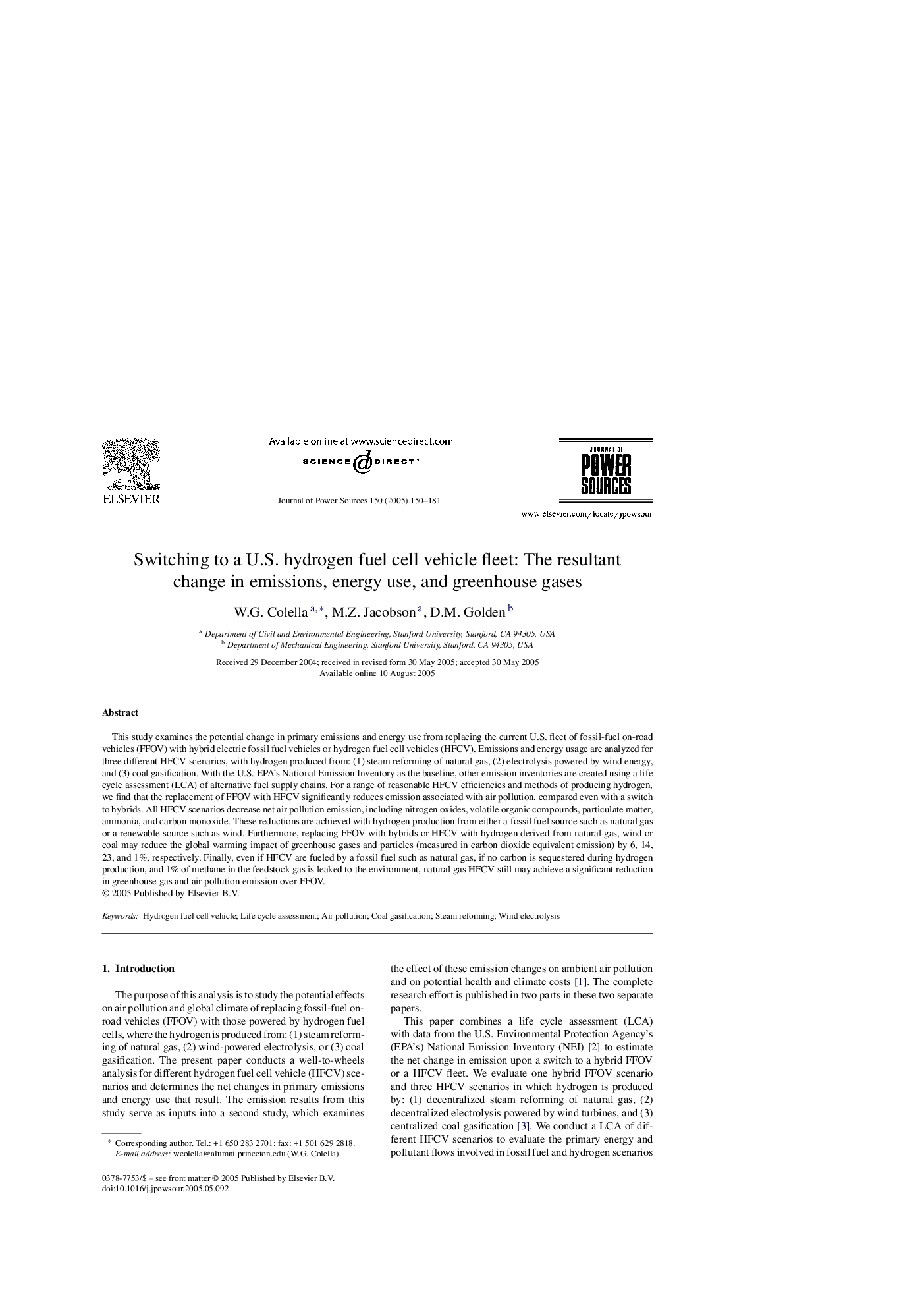| کد مقاله | کد نشریه | سال انتشار | مقاله انگلیسی | نسخه تمام متن |
|---|---|---|---|---|
| 9760180 | 1498042 | 2005 | 32 صفحه PDF | دانلود رایگان |
عنوان انگلیسی مقاله ISI
Switching to a U.S. hydrogen fuel cell vehicle fleet: The resultant change in emissions, energy use, and greenhouse gases
دانلود مقاله + سفارش ترجمه
دانلود مقاله ISI انگلیسی
رایگان برای ایرانیان
کلمات کلیدی
موضوعات مرتبط
مهندسی و علوم پایه
شیمی
الکتروشیمی
پیش نمایش صفحه اول مقاله

چکیده انگلیسی
This study examines the potential change in primary emissions and energy use from replacing the current U.S. fleet of fossil-fuel on-road vehicles (FFOV) with hybrid electric fossil fuel vehicles or hydrogen fuel cell vehicles (HFCV). Emissions and energy usage are analyzed for three different HFCV scenarios, with hydrogen produced from: (1) steam reforming of natural gas, (2) electrolysis powered by wind energy, and (3) coal gasification. With the U.S. EPA's National Emission Inventory as the baseline, other emission inventories are created using a life cycle assessment (LCA) of alternative fuel supply chains. For a range of reasonable HFCV efficiencies and methods of producing hydrogen, we find that the replacement of FFOV with HFCV significantly reduces emission associated with air pollution, compared even with a switch to hybrids. All HFCV scenarios decrease net air pollution emission, including nitrogen oxides, volatile organic compounds, particulate matter, ammonia, and carbon monoxide. These reductions are achieved with hydrogen production from either a fossil fuel source such as natural gas or a renewable source such as wind. Furthermore, replacing FFOV with hybrids or HFCV with hydrogen derived from natural gas, wind or coal may reduce the global warming impact of greenhouse gases and particles (measured in carbon dioxide equivalent emission) by 6, 14, 23, and 1%, respectively. Finally, even if HFCV are fueled by a fossil fuel such as natural gas, if no carbon is sequestered during hydrogen production, and 1% of methane in the feedstock gas is leaked to the environment, natural gas HFCV still may achieve a significant reduction in greenhouse gas and air pollution emission over FFOV.
ناشر
Database: Elsevier - ScienceDirect (ساینس دایرکت)
Journal: Journal of Power Sources - Volume 150, 4 October 2005, Pages 150-181
Journal: Journal of Power Sources - Volume 150, 4 October 2005, Pages 150-181
نویسندگان
W.G. Colella, M.Z. Jacobson, D.M. Golden,